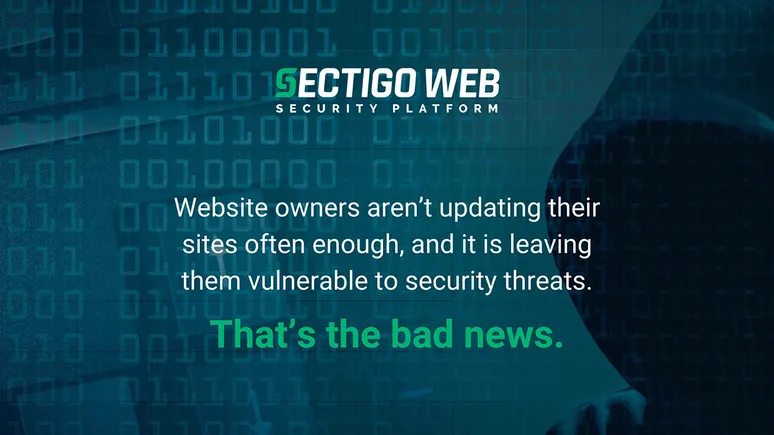Why Would My CMS Be Outdated?


But while the benefits of using a CMS for your website are very obvious, the drawbacks should come as a warning for anyone.
There are many websites on the web today that are running content management systems (CMS). In fact, most are.
And it makes sense: websites used to once be the specialty of tech-obsessed designers who knew how to code with HTML. Building a professional-looking website for your business today is now just a matter of grabbing a copy of a CMS and installing it on your server – cheap and effective.
But while the benefits of using a CMS for your website are very obvious, the drawbacks should come as a warning for anyone.
WordPress, the most popular CMS platform, is unmatched for flexibility and ease of use. That’s why so many people use it. But it is also a major target for hackers – some studies estimate as much as 78% of all hacked websites are running WordPress.
At first glance, you might think this means you should stay away from WordPress entirely if you value the safety and security of your online presence. However, the data paints a different picture: 56% of WordPress sites are using obsolete software.
In other words, updates were pushed to all WordPress sites, but those in charge of maintaining their websites never updated their software.
Hackers look for this behavior, and that’s why so many WordPress sites are victims of infiltration by viruses and other malware.
Why does this happen? If keeping your website updated is a simple and effective way to keep hackers away, why aren’t all website owners taking this very rudimentary step?
The answers are plentiful – and understandable.

Many website owners aren’t technologically-inclined.
On the one hand, it’s great that building a web presence is no longer limited to those willing to spend hours learning how to code it themselves. There is now access for nearly everybody who wants to build a website for cheap.
But on the flip side, many website owners do not have a basic understanding of website security.
If you don’t know or can’t comprehend how code works, then you might underestimate the impact an obsolete CMS can have on your security.
Pretend your website is a house. A burglar has managed to detect which windows you have accidentally left unlocked. Now that you know this, you make sure to go back and lock those particular windows so that the burglar cannot get access to your house.
With web security, the unlocked window is a vulnerability in your website code. When you update your CMS, you are essentially locking those “windows” so hackers can’t get access to your site or any sensitive data stored on it.
If you don’t understand this concept, you might let a few update notifications go by before you bother with it.
Some website owners think updating is difficult.
Maybe a website owner has never updated a CMS before. If that’s the case, then he or she might dismiss an update notification because they want to wait until they have the time to work on it properly.
What they don’t realize is updating a CMS is usually a one-click affair. In Wordpress, you can simply click on the “Update” button and the Wordpress software will download the files and install the update for you. Some web hosting companies even offer this service for their clients.
In short, updating has become a very simple process.

The good news…
The good news is these content management systems are not necessarily insecure. Many of the bigger platforms, like WordPress and Joomla, are very proactive in updating their software regularly to account for security issues. Website owners should feel confident in knowing that upfront.
The other piece of good news is there are solid services available to help website owners keep their site updated and free from vulnerabilities without any more coding experience needed. Web Patch, for example, is specially designed to monitor a CMS to find critical weaknesses and correct them before cybercriminals can exploit them.
By keeping your website updated and monitoring it regularly, you can be sure that the weaknesses in your code will be fixed in a timely fashion – and your site can keep running as intended.